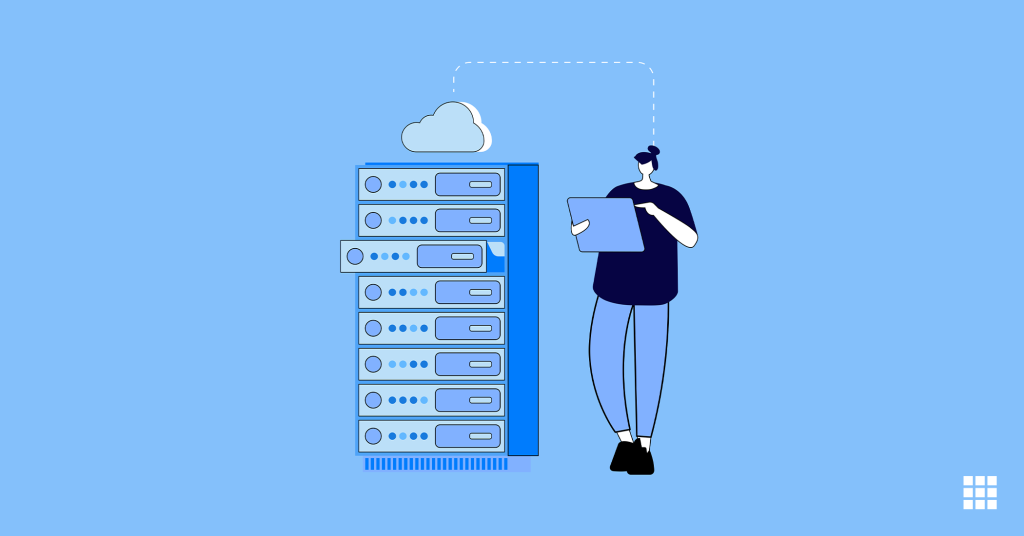
Table of Contents
Dedicated hosting refers to a type of web hosting service where an entire physical server is dedicated to a single client or website. Unlike shared hosting, where multiple websites share resources on the same server, dedicated hosting provides exclusive access to server resources, offering enhanced performance, control, and security. Here are some features and advantages of dedicated hosting:
Dedicated hosting is differed from VPS hosting or shared hosting, which share a server’s resources among multiple clients. Dedicated hosting provides higher performance, customization, and security, but usually at a higher price than other hosting services.
Benefits of dedicated hosting services:
- Exclusive Resources: all server resources, including CPU, RAM, disk space, and bandwidth, are dedicated solely to the client’s website or application. This ensures consistent and reliable performance, even during periods of high traffic or resource-intensive operations.
- Customization: Clients have full control over server configurations, allowing them to customize the operating system, software stack, security settings, and other aspects of the hosting environment according to their specific requirements and preferences.
- High Performance: Dedicated servers are optimized for performance, with powerful hardware components, high-speed network connections, and advanced infrastructure features such as RAID storage, SSD storage, and redundant power supplies. This results in faster page load times, improved website responsiveness, and better overall user experience.
- Enhanced Security: Dedicated hosting offers a higher level of security compared to shared hosting, as clients have sole access to the server and can implement stringent security measures to protect their data, applications, and sensitive information. This includes firewall configurations, intrusion detection systems, SSL encryption, and regular security updates.
- Scalability: It provides scalability and flexibility to accommodate growing traffic and resource demands. Clients can easily upgrade or downgrade server resources, such as CPU, RAM, and storage, as their needs change over time, without experiencing downtime or disruptions to their services.
- Isolation: Dedicated servers provide complete isolation from other users, eliminating the risk of resource contention, noisy neighbors, or performance degradation caused by activities of neighboring websites or applications. This ensures a consistent and reliable hosting environment for the client’s website or application.
- Full Root Access: Clients have full administrative access to the server, allowing them to install, configure, and manage software applications, databases, and server settings without any restrictions. This level of control enables advanced customization, optimization, and troubleshooting capabilities.
- 24/7 Technical Support: Dedicated hosting providers typically offer round-the-clock technical support to assist clients with server setup, configuration, maintenance, and troubleshooting. This ensures prompt resolution of issues and minimizes downtime, maximizing the availability and reliability of the hosting service.
- Comprehensive Monitoring: Dedicated hosting plans often include monitoring and management tools to monitor server performance, track resource utilization, detect potential issues, and generate reports. This proactive monitoring helps identify and resolve problems before they impact the client’s website or application.
- Dedicated IP Address: Each dedicated server comes with its own dedicated IP address, providing a unique identifier for the client’s website or application. This is particularly beneficial for SSL certificate installation, email delivery, and maintaining online reputation.

How does dedicated hosting differ from other hosting types?
Dedicated hosting stands apart from other hosting types like shared, VPS, and cloud hosting in several ways. It excels in serving high-traffic, resource-intensive websites or applications, while others prioritize cost-effectiveness or flexibility.
Who needs a dedicated hosting server?
Typically, if you have specialized needs and high bandwidth requirements, you stand to benefit the most from dedicated server hosting. Bonus points if you have the technical knowledge required to maximize the customizability offered by dedicated hosting servers.
Here are the top candidates for dedicated servers:
- High-traffic websites with a large volume of visitors may require a dedicated server to handle the traffic efficiently.
- Ecommerce websites that handle sensitive information like customers’ credit card details may need a dedicated server for enhanced security to protect customer data.
- Organizations that need enhanced security to safeguard reams of valuable data might be better served by a dedicated server.
Overall, dedicated hosting offers unparalleled performance, control, and security for businesses and organizations with high-traffic websites, resource-intensive applications, or specific security and compliance requirements. While it may be more expensive than shared hosting or VPS hosting, the benefits of dedicated hosting justify the investment for clients seeking maximum performance, reliability, and customization options for their online presence.